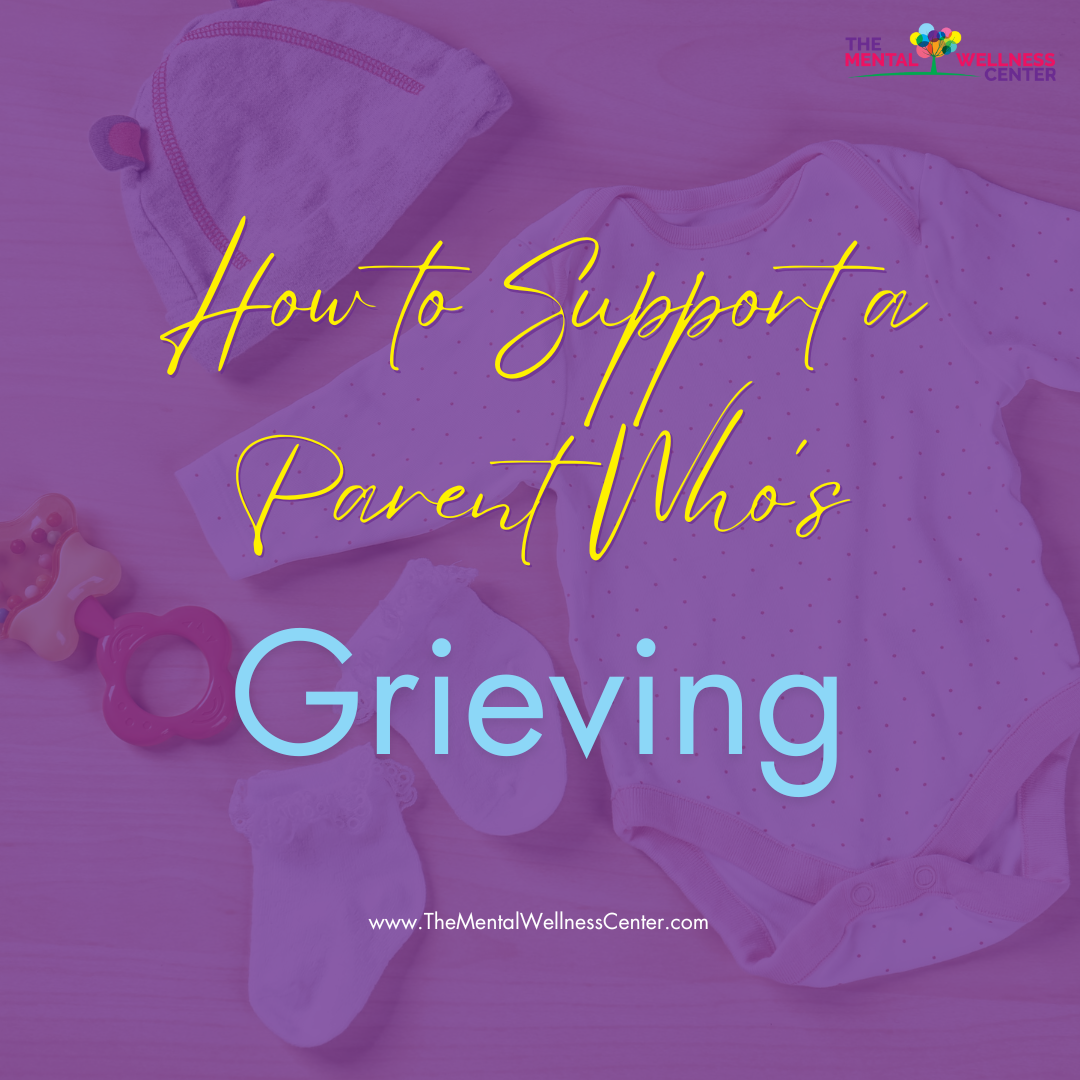How to Support a Parent Who’s Grieving
When someone you know has lost a child, it can be challenging to know what the right thing to say is. What you are supposed to do to help support them, or even what you can do that isn’t going to seem like a burden. For a parent who has experienced the loss of a child, they can begin to feel isolated and struggle with understanding what their next steps are supposed to be.
There can be pressure to find the perfect phrase or the right gift, but the most important thing you can offer to a parent who has experienced the death of a child is giving them your support. Using empathy instead of sympathy when speaking with the parent or parents, by not trying to find the silver lining in the situation, but accepting that this is an unthinkable and horrible thing they are living through.
Some ways you can show up using empathy include:
Saying their child’s name.
Using their name to show that you not only remember their child, but aren’t afraid to speak it out loud. There can be a fear that saying their child’s name can act as a reminder of what they’ve lost, but the truth of the matter is that the parent is already thinking about their child who has died. Saying their child’s name is affirming and honoring the child’s memory. When many parents are fearful their child will be forgotten, by saying their name aloud, you are showing them the space their child still holds in your life.
Listen without trying to fix their grief.
This is when listening with empathy is imperative. Empathy is telling someone I cannot imagine the pain the loss of your child is causing you. I’m here and I’m ready to sit with you. Sympathy says I see this is painful for you, but at least you can have children. Grief isn’t something that can be fixed; it is messy, it’s not a linear process. Listening opens up a space for a bereaved parent to experience the array of emotions while not feeling as though they need to isolate.
Show up consistently.
Your support doesn’t end after the funeral, memorial, or ceremony honoring their child’s life has concluded. The first year of grief is the hardest, and when someone who is grieving is at risk of developing prolonged grief disorder. Continuing to check in by using small gestures to let the bereaved parent know that they are still on your mind. Sending a text message, bringing them a meal or coffee, going with them to run errands, or helping with the day-to-day tasks that can pile up. Anything you can do to offer your support that is authentic to you and your relationship with the bereaved parent.
Respect their process.
Every parent’s grief is unique, and as their support person, it’s essential to be open and respectful of the bereaved parent's boundaries and needs. By following their example of what they need as support, they will be able to meet those needs appropriately. Some bereaved parents may seek company and hold gatherings, while others may need solitude or a combination of the two. Always allow for the bereaved parent to lead their grief, and never show judgment or push your expectations on how they should be grieving. Remember, grief is a personal experience.
Remember the important dates.
Mark their child’s birthday or the anniversary of their passing in your calendar so you can remember to reach out on those dates. Even years later, receiving a message saying, “I thought about your child today, and I’m thinking about you on this day,” can bring comfort and help alleviate the isolation a bereaved parent might feel.
Offer practical help.
Asking direct questions instead of a general “what can I do?” Being specific in an offer for help is going to be more beneficial. Grief can make even the most basic tasks feel overwhelming. By acknowledging the need for answers on what you can do to help, you reduce their mental load and open up the ability to take on a task you can truly accomplish. Some examples might include: picking a specific day to bring dinner or buying a gift card to a restaurant, if there are living kids at home, offering to pick them up to take them out for the day or getting them from school, going to the grocery store asking if they are needing any of the basics (milk, cheese, eggs, etc.).
Using the language they use when discussing their child.
This is especially important when supporting someone who has experienced a miscarriage, a stillbirth, or an abortion. If the bereaved parent had a miscarriage in their first trimester and they refer to their child as a baby, then you should also refer to their child as a baby. If the bereaved parent had to have a termination for medical reasons (TFMR) and they were in their third trimester, and they call their child a fetus, then you should also refer to their child as a fetus. And remember, the language the bereaved parent uses can change, and if it changes for them, then as their support person, you should also change your language to always match theirs.
Encourage professional or community support.
Sometimes the most loving thing you can do is to remind a bereaved parent they are not alone and that help is available. Accessing a peer support group, working with a therapist, or participating in a professionally facilitated group can provide a safe space for individuals to process their grief openly.
Know someone who may benefit from a compassionate group space?
Share this with them to learn more.

